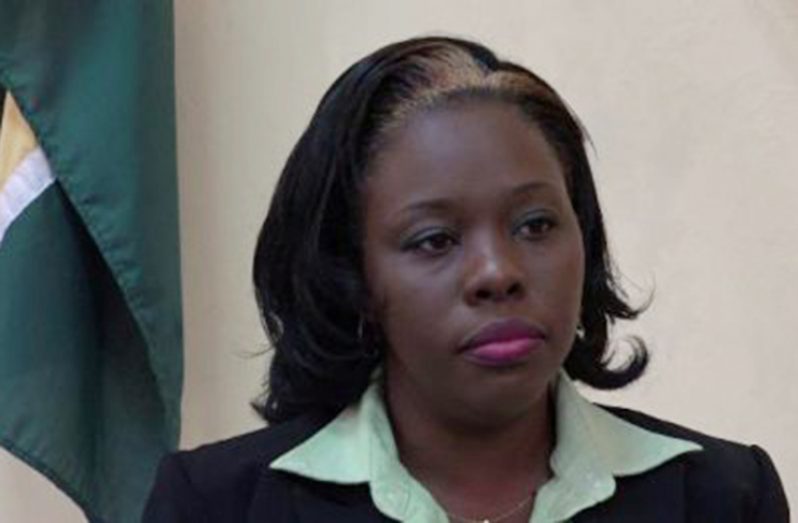– as towns prepare for Local Gov’t Elections

VOTER-TURNOUT at the November 12 Local Government Elections (LGEs) is predicted to increase significantly, but the inability of some town councils to reach the basic needs of residents may act as a deterrent, according to some mayors.
In 2016, when Local Government Elections were restored after 23 years, only 43 per cent of the 507,633 persons registered to vote went to the polls, but this time around, the voter-turnout is expected to improve with growing confidence in the local government system, particularly in the towns of Bartica, Lethem, Rose Hall, and Mabaruma.

On Sunday, Mayor of Bartica Gifford Marshall, said while the masses had lost hope in the local government system prior to March 2016, confidence is gradually being restored under the mixed system of Proportional Representation and First- Past-the-Post.
The mixed electoral system allows for 50 per cent or half of the number of councillors of each Local Authority Area to be elected through the Proportional Representation component and the other 50 per cent through the First-Past-the-Post or constituency component.
“The mixed system, especially the constituency component of it has resulted in increased development in all constituencies over the past two and half years, so yes, I am optimistic that more persons will go to the polls this time around,” Marshall told this newspaper.
He said the local government model creates an opportunity for residents to take ownership of their towns, and in Bartica, the municipality has been capitalising on the system.
Marshall explained that while the Mayor and Town Council of Bartica receives an annual subvention of $15M from central government for the execution of capital projects, it collaborates with the private sector and residents to execute minor projects such as maintenance of roads and other facilities within the nine constituencies.
But while the Town Council with support from central government and the private sector has made significant progress, Marshall said with increased funding, the municipality would be in a better position to execute major projects, such as the construction of roads and bridges.
He said the council hopes to tap into the royalties collected by central government from the four quarries – BK Quarry, Big Hope Quarry, Durban Quarry and St Mary’s Quarry – operating within the town.
PROPERTY RE-EVALUATION

“Central government has made a move to have a re-evaluation of properties done, because municipalities are complaining that they don’t have enough finance to do what they have to do. While we applaud and welcome that move, our demand for finance is very high and so we believe that if the municipality can benefit from a fraction of the royalties that the quarries pay to central government, then of course that will help us a great deal,” the mayor explained.
He explained that the re-evaluation of properties in Bartica could not significantly increase the council’s finances, because the town is not heavily populated as in the case of Linden or Georgetown. According to him, the Mayor and Town Council would be making a strong case to government soon.
Former Mayor of Lethem, Carlton Beckles, told the Guyana Chronicle that residents are upbeat about the local government system, despite the challenges being faced. He said when the elections were held in March 2016, there was not much optimism, especially on the part of the younger population, but persons are beginning to see benefits.
Beckles, who now sits as a councillor, said under his stewardship the municipality improved its fee structure to rake in much-needed finance to address many of the issues that had affected the town. When the Lethem Mayor and Town Council took office following the March 18, 2016 LGEs, it took over a system from the Neighbourhood Democratic Council (NDC) which saw approximately $25,000 to $30, 000 in revenues being raked in on a monthly basis. Beckles boasted that presently, the council rakes in an average of $3M in revenues every month.

“Using revenues we collected, the council bought a garbage truck for about $9.7 million – that is bringing in even more revenues. Before the garbage truck was purchased, we were using a tractor to collect garbage, and revenues from that alone amount to about $900, 000 to $1.2M a month, so we were encouraged to buy the garbage truck,” Beckles explained. Additionally, the council purchased a 30-seater bus to transport children at a minimum fee, and 50 street lights from a batch of 150, using revenues it collected.
The fee structure now includes vending fees, application fees and fees for the hosting of events, he said, while noting that such fees did not exist in the past.
Because the system is working for residents, Beckles is positive that more residents will go out to vote come November 12. He said while the Lethem Mayor and Town Council is given an annual subvention of $15M, it continues to utilise various avenues to meet the needs of residents.
Mayor of Mabaruma, Henry Smith, like Marshall and Beckles opined that more residents would go to the polls in the coming elections.
Smith said though that there was much skepticism during the last Local Government Elections because of political tactics which were employed by the previous People’s Progressive Party (PPP) government such as the installation of Interim Management Committees (IMC). Residents now feel empowered to address local government issues.
The Mabaruma Mayor and Town Council is not yet collecting rates and taxes, having only recently been elevated to a town, however, with the use of the government subvention (S$15M), and support from the Ministry of Public Infrastructure and the private sector, it has been addressing many of the infrastructure-related issues within the town.
Mayor of Rose Hall, Vijay Ramoo, though expressing the view that residents will turn out in their numbers to vote, it would be because of his own doing. He alleged that central government is stifling development within the town, and as such, he has had to use his own resources coupled with the $15M subvention, and revenues garnered, to execute projects within the town.
“Since April 2016, when I took office, the council had $16M in its treasury from subventions from previous years and up to today, central government has not given us the blessing to utilise the money,” he complained.
NOT INTERESTED
Mayor of Anna Regina Rabindranauth Mohan is not optimistic about LGEs. On Sunday, he told this newspaper that “people seem not to have an interest in Local Government Elections or the local government system.”
He said the council would often hold community meetings in various parts of the town, but only a few would turn up. “Sometimes you call a meeting, six persons turn up or seven,” he posited.
According to him, residents have lost hope in the system because of the council’s inability to address very basic infrastructural and developmental issues.
Aside from the $15M subvention it receives from central government for capital projects, Mohan explained that the Anna Regina Town Council depends heavily on the collection of rates and taxes, but with those rates and taxes being extremely low, there is only so much it can do.
“On average, people pay approximately $2000 a month on their properties, some are paying as low as $300, that can’t even write a receipt,” Mohan pointed out, while noting that the revenues garnered from rates and taxes “barely carry the staff.”

That council generates approximately $600,000 a month in rates and taxes when its monthly expenses total approximately $2M, of which close to $1M is used to pay staff.
To increase its revenues, the municipality has been collecting vending fees. Currently, it has approximately $10M in revenues from persons operating within its two markets.
Mayor of Linden, Waneka Arrindell, said there is a sense of dissatisfaction among the people. “I believe that the expectation of the people in the township was far higher than the ability of the council to provide,” she said, positing that the Linden Mayor and Town Council does not have the resources to fulfil its mandate.
That council collects approximately 40 per cent of its rates and taxes on a monthly basis, and with little or no money to purchase much-needed equipment for road repairs and other key services, it depends on the Regional Democratic Council for assistance. “Our expenses far exceed our income,” she added. The Linden Mayor and Town Council has a debt of approximately $200M.
The outdated rate and taxes system has been blamed in part for the council’s current financial state. The government is currently working on a countrywide evaluation system to date the rates and taxes.




.png)









